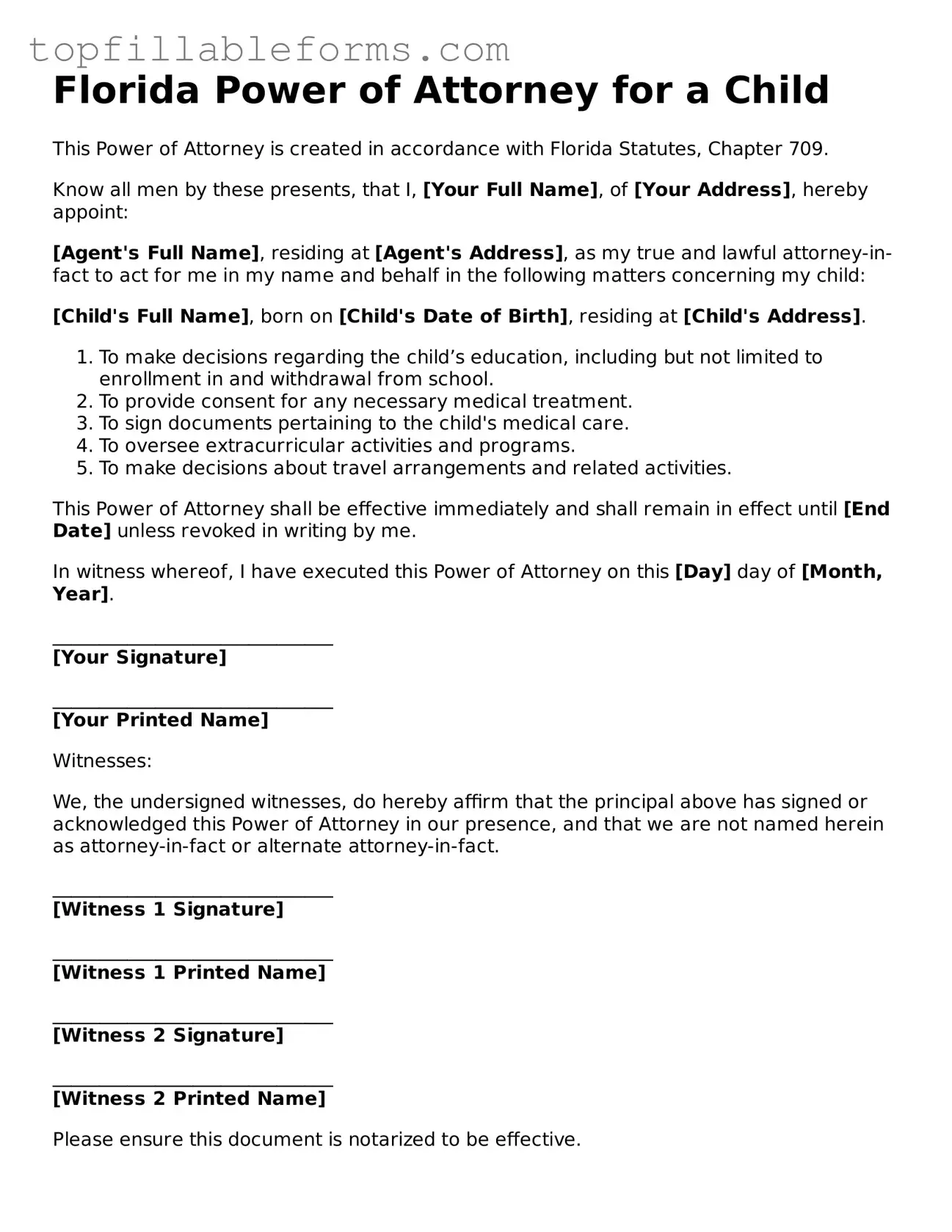Attorney-Verified Power of Attorney for a Child Template for Florida
The Florida Power of Attorney for a Child form is a legal document that allows a parent or guardian to grant temporary authority to another adult to make decisions on behalf of their child. This form is particularly useful in situations where the parent is unavailable, such as during travel or medical emergencies. Understanding the nuances of this document can help ensure that a child's needs are met effectively and promptly.
Open Power of Attorney for a Child Editor Here

Attorney-Verified Power of Attorney for a Child Template for Florida
Open Power of Attorney for a Child Editor Here
Finish the form now and be done
Finish your Power of Attorney for a Child online by editing, saving, and downloading fast.
Open Power of Attorney for a Child Editor Here
or
▼ PDF File
